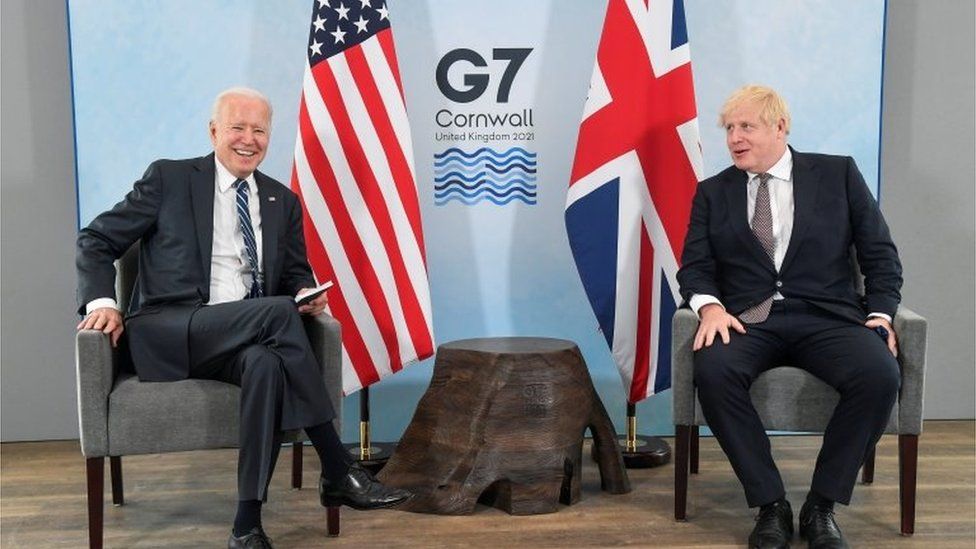Among the pressing political issues discussed at the 47th G7 Summit on the weekend is the topic of electric cars. The seven world leaders attending the summit were to discuss ways to reduce emissions from fossil fuels by embracing electrification in the automotive industry. A draft proposal suggested that G7 governments would seek a benchmark of alternatively fueled vehicles making up the majority of new car sales by 2030 or sooner.
The path forward as well as the specific goals are unclear and will likely be discussed ad nauseam. The broad strokes include a commitment to decarbonize transportation industries through the current decade by embracing the implementation of electric cars and developing emission-less alternative transportation options for trains, buses, shipping, and air travel.
Prior to the G7 Summit, held in the UK this time around, it appears many of the leaders were not yet on the same page. US President Joe Biden has yet to endorse the proposal and a US official declined to say whether it was supported by the White House.
Japan’s green strategy was announced in December and already commits to making all new vehicle sales either all-electric or hybrid by the middle of the 2030s. The UK has perhaps the strongest stance, committing to banning the sale of ICE-only passenger cars by 2030. Canada’s goal is much less ambitious, targeting 30% of all light-duty vehicle sales as zero-emission by 2030 and 100% by 2040.
Softening the deadlines
Should G7 leaders come to an agreement on the proposal, it would be a much softer stance on electrifying the world’s fleet than has been discussed in the past year. If the benchmark is simply a “majority” of new car sales as electric or hybrid, it’s a more agreeable and less drastic goal for carmakers to achieve.
Previous commitments have been ambitious. California has said the state will ban the sale of new gas-powered cars by 2035. Germany has already begun banning high-polluting diesel models, and Canada’s francophone province, Quebec, has stated they will ban new gas-powered cars from 2035.
Although not a G7 country, Norway has already committed to a deadline of 2025 to end sales of fossil-fueled cars with around 60% of new vehicles sold today being electric.
In large part, it’s been carmakers who have pledged to go all-electric. In January, General Motors established a goal of selling all zero-emission vehicles by 2035. Volvo is aiming to be all-electric by 2030, and most others have benchmarks for electrification by 2030. Jaguar has targeted 2025 to be completely electric.
Perhaps more realistically, Ford has said they expect 4 out of 10 vehicles sold by 2030 will be electric.
Reason for auto industry to exhale
The shift to electrification will still be dramatic, but not as sudden and revolutionary as it has appeared. Governments softening their approach to electric car implementation deadlines will allow carmakers and dealerships to exercise their specialties for at least another decade, slowly transitioning their business models to the new goals.
The nation’s infrastructure is nowhere near ready to support an exponential influx of new electric cars yet. By stretching a prospective ban out by several years, it allows dealers to be better prepared, more electric charging stations to be installed, the aging electrical grid to be bolstered, and customers warmed up to the idea of giving up their gas-powered cars.
Did you enjoy this article from Jason Unrau? Please share your thoughts, comments, or questions regarding this topic by submitting a letter to the editor here, or connect with us at newsroom@cbtnews.com.
Be sure to follow us on Facebook and Twitter to stay up to date or catch-up on all of our podcasts on demand.
While you’re here, don’t forget to subscribe to our email newsletter for all the latest auto industry news from CBT News.










